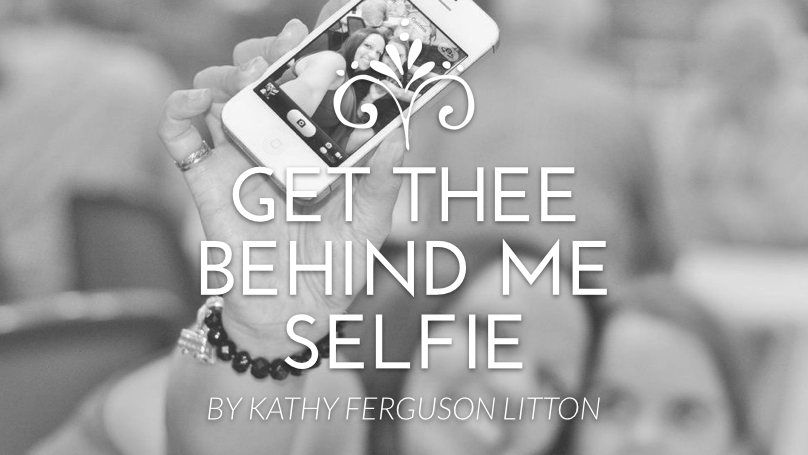A picture of ourselves, taken by ourselves.
Oxford’s 2013 Word of the Year was “selfie”—a signal that the digital self-portrait explosion has gone wild globally.
We stage the perfect shot as vehicle in creating an identity we desire. We let people see us the way we want to be seen.
- “With my beautiful besties” (complete with duck lips)
- “Great workout”
- “So drunk, tripped on steps” (The first use of “selfie” was by Australian man drunk at a 21st birthday party)
- “Having my quiet time”
- “Three world powers at a funeral”
Do we work to make ourselves someone other than who we really are? (I rarely take selfies of me eating peanut butter out of jar with a spoon.) Which ends up making us very pre-occupied with ourselves. Self-absorption and self-consciousness is big red neon sign blinking “I’m Insecure.”
Which brings to mind a small book by Tim Keller “The Freedom of Self-Forgetfulness” (An absolute MUST read and presently $1.62 on Amazon.) Self-forgetfulness? Never going to be word of the year. Ever.
Keller includes a powerful quote from a Vogue interview with Madonna:
“My drive in life comes from a fear of being mediocre. That is always pushing me. I push past one spell of it and discover myself as a special human being but then I feel I am still mediocre and uninteresting unless I do something else. Because even though I have become somebody, I still have to prove that I AM somebody.”
Tim does not demonize her for this statement but comments, “Madonna knows herself better than most of us know ourselves.”
Back to selfies. Our pictures tell a story so others will think we “are somebody”. Like Madonna we don’t want to be “mediocre and uninteresting”.
We are ministry wives— and our inner conversations are startling similar to Madonna’s. We just won’t ever put those words in print.
We struggle too. Ministry culture is one insecurity landmine after another. We look for “Christianized” ways to convince others we are “somebody” so we can convince ourselves.
The key truth in Keller’s book is: The GOSPEL provides for freedom from our pre-occupation with our selves and utter neediness of validation, approval and esteem of others.
The gospel deals with our insecurity. Here is mind-boggling definition of insecurity, you ready? “Not secure.” Profound. The validation we crave is found in the complete acceptance and unfailing love of Jesus. We go from “not secure” to “secure” with the power of the gospel.
More from Tim Keller:
“The thing we should remember from meeting a truly gospel-humble person is how much they seemed to be totally interested in us. Because the essence of gospel-humility is not thinking of myself or thinking less of myself, it is thinking OF MYSELF LESS.”
Thinking of myself less. How?
“It is one thing to understand the gospel but is quite another to experience the gospel in such a way that it fundamentally changes us and becomes the source of our identity and security.” J. D. Greear
I am truly less self-conscious when I am secure. I do think of myself less. I am not as sensitive, nor as needy. I look to give compliments not receive them. I can serve freely and be overlooked. Criticism does not destroy me. Rejection is survivable. Applause is not constantly sought. Failure does not cripple me. My soul is more generous. I don’t stand around with a tin cup begging for others to fill me up.
The gospel allows me to pray this very freeing prayer:
“In Christ, there is nothing I could do that would make you love me more, and nothing I have done that makes you love me less.” (The Gospel Prayer by JD Greear)
This can be true for Madonna or the senior pastor’s wife at First Baptist North Mobile.
And for you.
Published January 17, 2014



